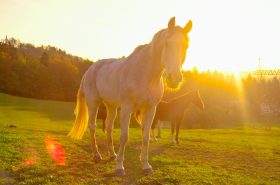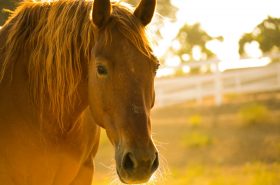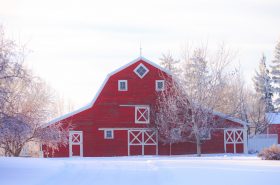You’re in the barn doing chores or maybe even riding when you hear your horse coughing. This scenario is all too common, but if you’re like me, you’re likely wondering: is this normal or could my horse be sick?
Coughing is the body’s way of removing foreign material or mucous from the lungs and/or upper airway passages. It can also occur as a reaction to irritants or even cold air in the respiratory tract.
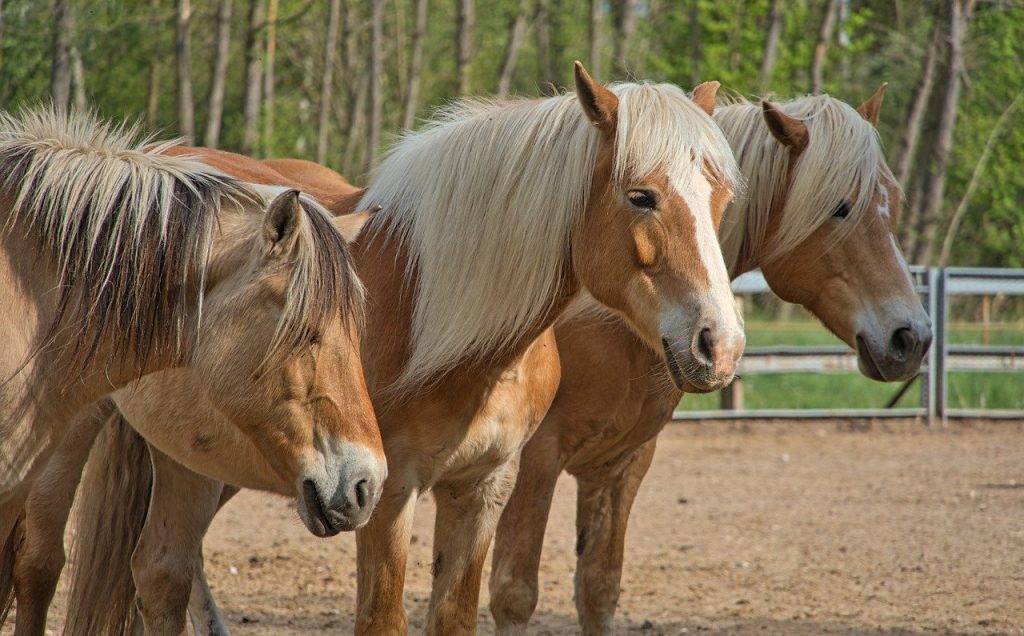
The causes of coughing in horses are varied and while some coughs are completely harmless, others signal that something more serious is going on. So how do you know what’s causing your horse’s cough? First, take the whole horse into consideration and ask yourself these questions:
- How long has the cough been present?
- How frequent is the cough?
- Does my horse have nasal discharge or abnormal breathing?
- Does my horse have fever?
- Is the cough worsened by exercise?
- Is my horse lethargic or ill in any other way?
- Does my horse only seem to cough under certain conditions (when eating, etc.)?
After determining the answers to the questions above, you can then get a better idea of what may be going on and whether or not veterinary intervention is needed.
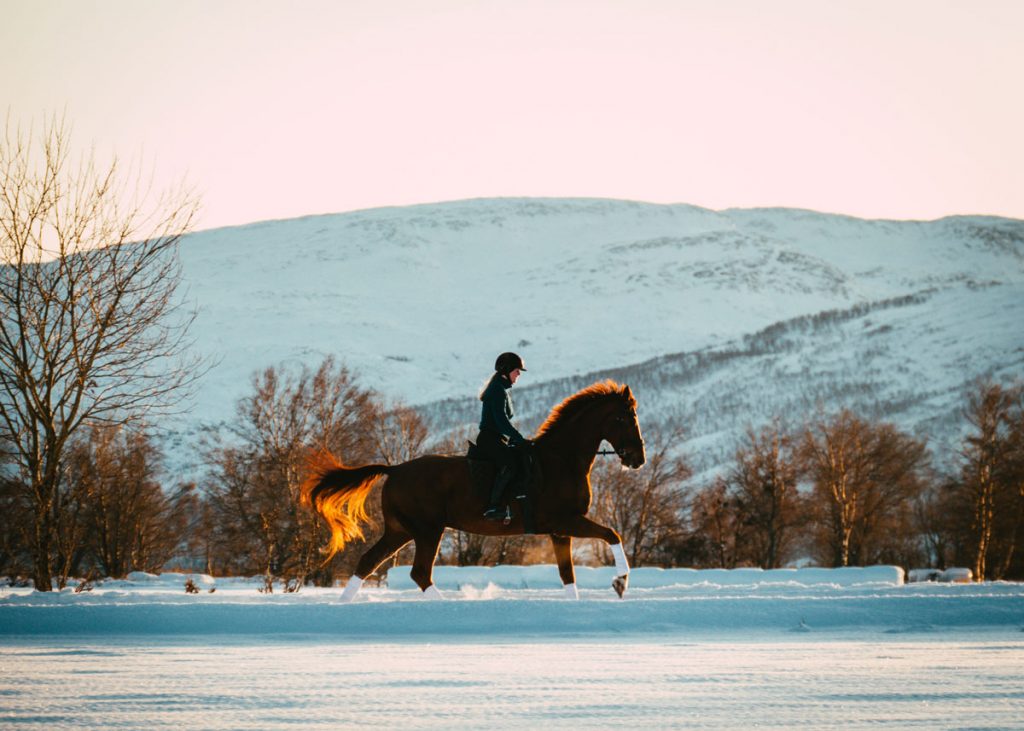
With that said, here are some common causes of coughing in horses:
- Viral Infection: Frequent dry cough often accompanied by watery nasal discharge, fever, lethargy, and/or loss of appetite;
- Bacterial Infection: Intermittent wet cough often accompanied by noticeable, thick nasal discharge, fever, loss of appetite, and/or lethargy. May have enlarged lymph nodes under jaw;
- Inflammatory Airway Disease: Chronic, intermittent cough occurring more commonly in younger and sometimes middle-aged horses. May be accompanied by nasal discharge. Horse will likely exhibit decreased performance;
- Recurrent Airway Obstruction (Heaves): Chronic wet cough which is often more noticeable when eating, in the barn, or when being exercised. Horse may have increased respiration and flared nostrils. More common in middle-aged and older horses. Coughing may be less apparent when horse is on pasture
- “Warm-Up” Cough: Horse appears healthy, but coughs when being warmed up. After initial coughing, horse is fine. (Likely caused be mucous accumulation);
- Dust-Induced (Arena Cough): More common in winter. Horse coughs initially when being ridden in an arena and then appears fine. Horse is otherwise healthy;
- Cold Weather-Induced: Usually occurs when horse is being exercised in cold weather. After initial coughing, horse is fine;
- Foreign Object: (not choke) Odd, non-resolving cough. Horse may hold head or neck in strange position. The object lodged in the larynx or farther down may be dislodged with coughing, but veterinary intervention may be necessary.
If your horse has fever, lethargy, or any other symptoms of an illness, obviously, a call to your vet is warranted. Viral infections tend to clear up on their own with some TLC, but bacterial infections will likely need treatment.
Love this blog post? We think you will like Calm Your Horse with Lavender

